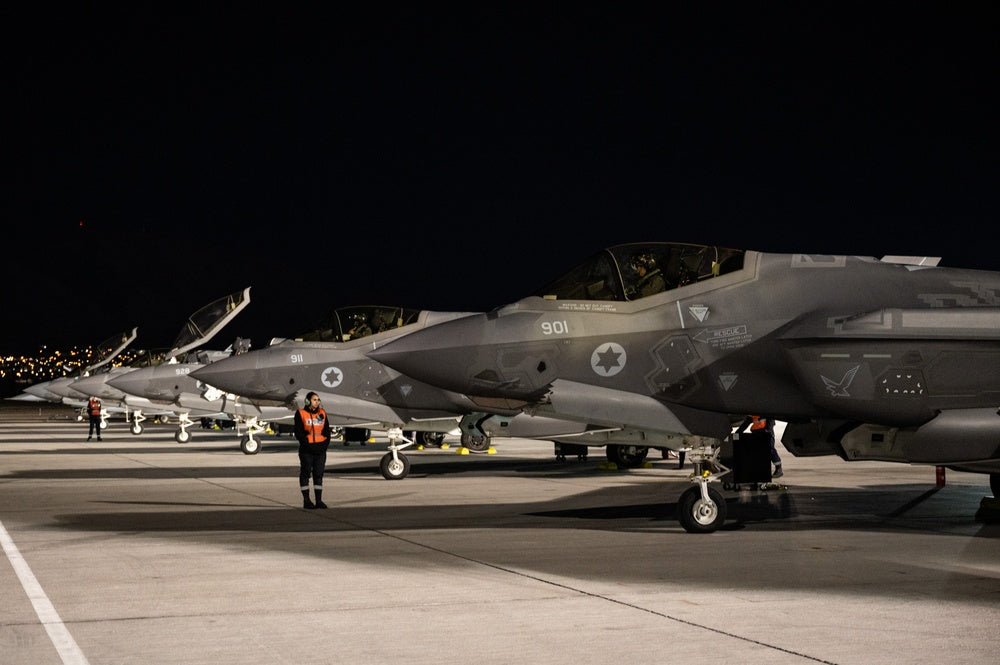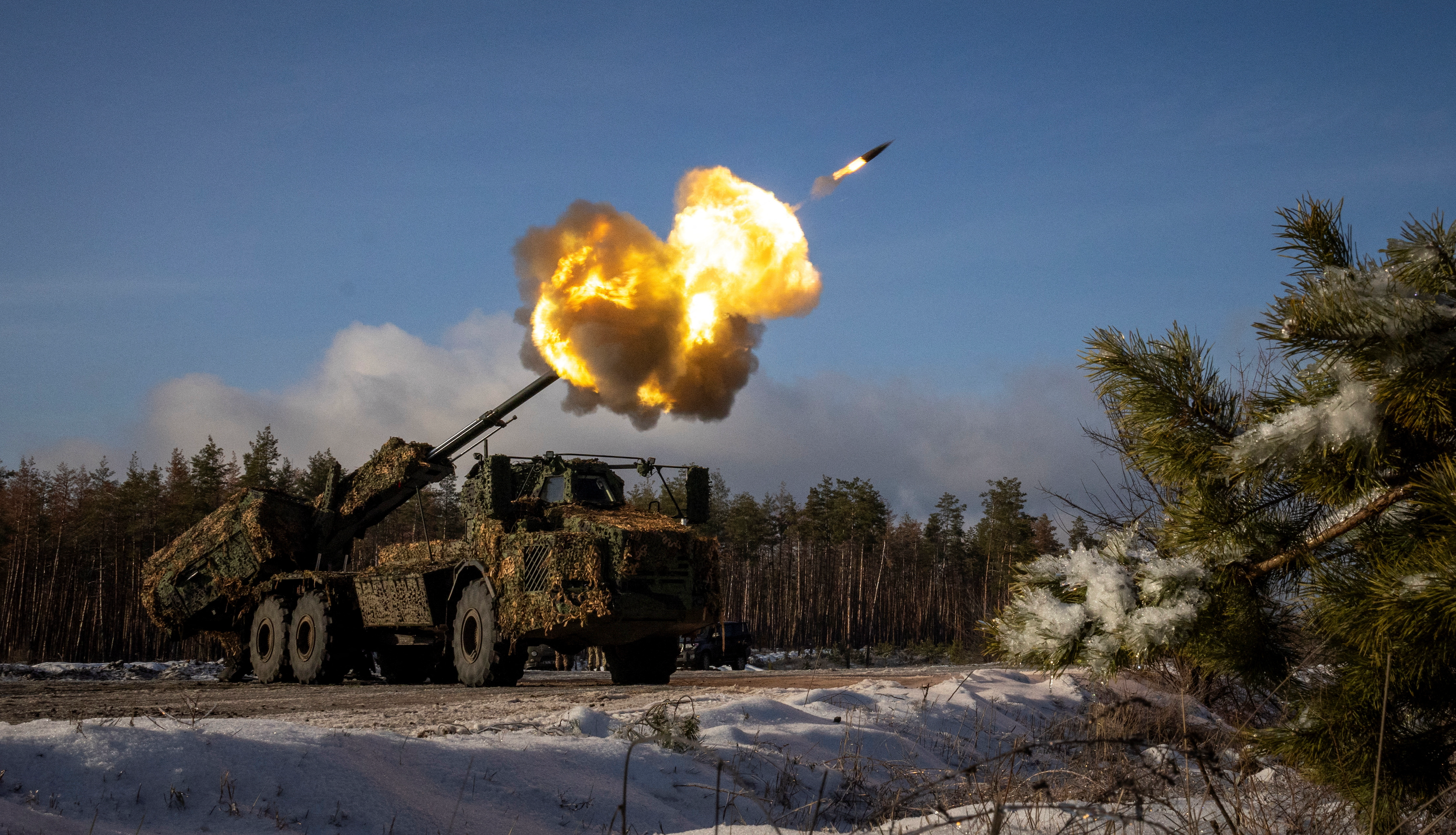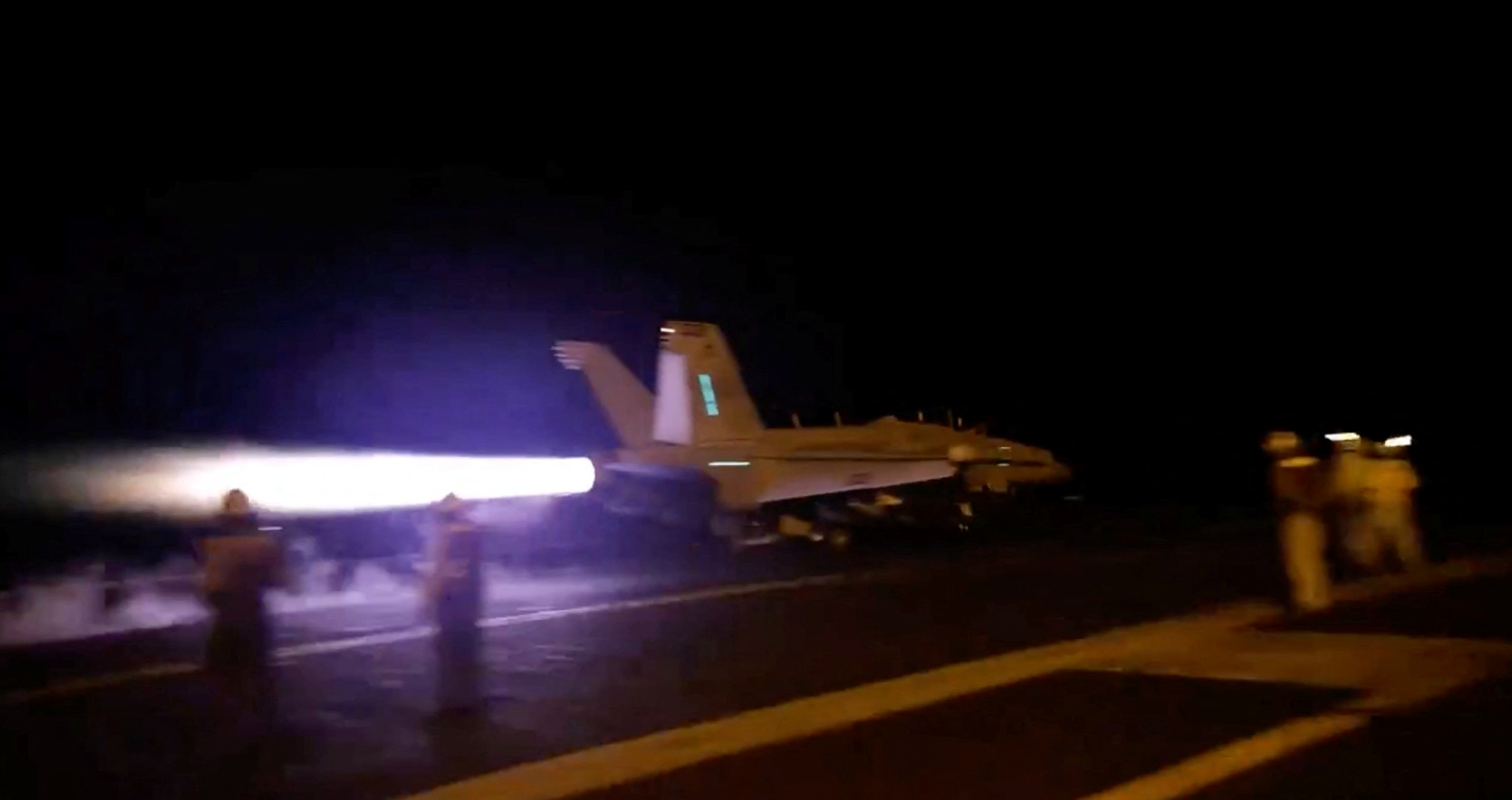
Israel carries out strikes on Hezbollah in south Lebanon
PHOTO CAPTION: Israeli Air Force members wait for F-35I Adirs to launch for a Red Flag-Nellis 23-2 mission at Nellis Air Force Base, Nevada, March 16, 2023. (U.S. Air Force photo by Airman 1st Class Trevor Bell via U.S. Defense Visual Information Distribution Service)
JERUSALEM/BEIRUT (Reuters) -Israel unleashed an intense barrage of air strikes on a valley in south Lebanon, Lebanese security sources and the Israeli military said, after a rare Israeli acknowledgment of a special forces operation on the border.
Lebanese security sources told Reuters there were at least 16 airstrikes in quick succession on the Suluki Valley, describing them as the "densest bombardment of a single location" since border-area hostilities began three months ago.
The Iranian-backed Hezbollah militia has been trading fire across Lebanon's southern border with Israeli forces in support of Palestinian ally Hamas in the Gaza Strip. Hamas militants rampaged across the Gaza border into Israel on Oct. 7, prompting an Israeli invasion of the enclave backed by heavy air strikes.
The Israeli military said it had carried out "aerial and artillery strikes" against Hezbollah emplacements and weapons infrastructure in the forested Suluki Valley "within a short amount of time".
The Lebanese security sources did not confirm whether Hezbollah targets were hit, but said the heavily armed group has used the valley to launch rockets at Israel.
Israel's Kan radio reported on Tuesday what it described as an unusually large attack by its air force and artillery on dozens of targets in the Suluki Valley.
Hezbollah said on Tuesday it had launched rockets at Israeli troops across the hilly frontier.
The Israeli military said its special forces had carried out a strike in the area of Ayta al-Shaab in south Lebanon "to remove a threat", and that its aircraft also struck a Hezbollah anti-tank missile launcher in the region.
The Israeli military only rarely acknowledges operations by its special forces. It did not say where specifically they had operated or what kind of threat they had removed.
(Reporting by Ari Rabinovitch in Jerusalem and Maya Gebeily in Beirut; Editing by Andrew Heavens and Mark Heinrich)









